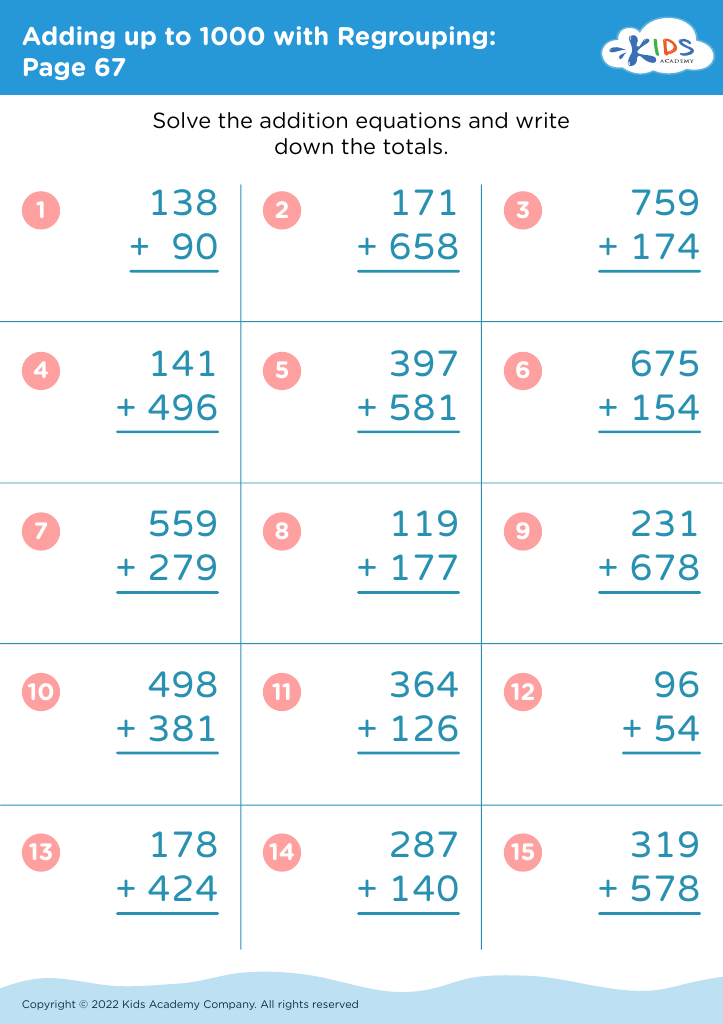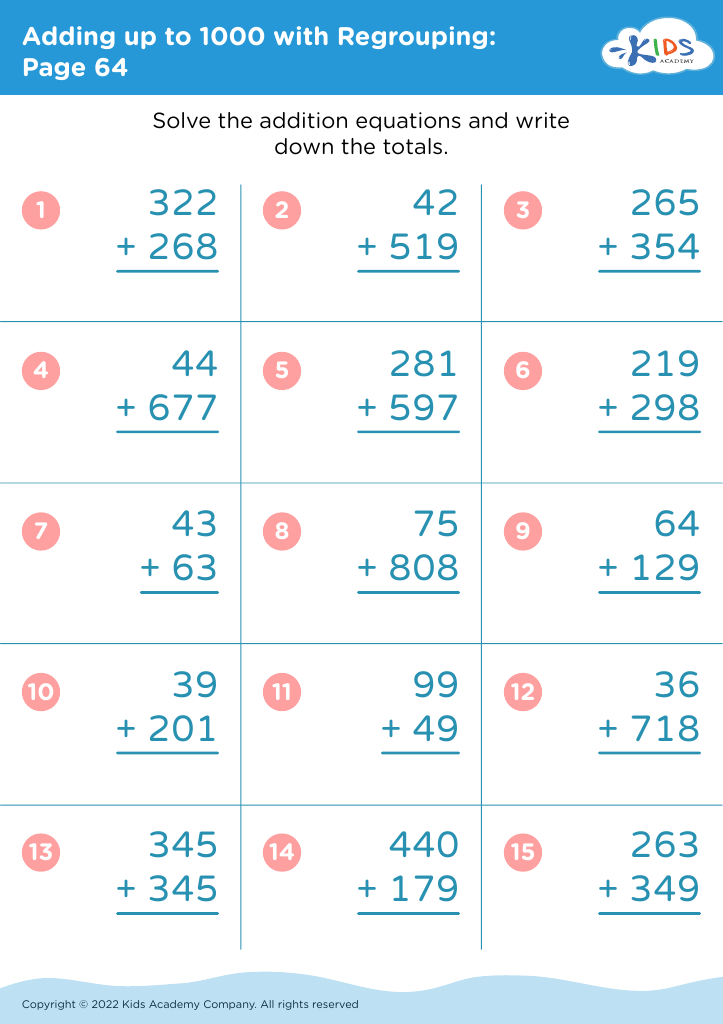Addition Practice Adding up to 1000 with Regrouping Worksheets for Ages 3-9
3 filtered results
-
From - To
Enhance your child's math abilities with our "Addition Practice Adding up to 1000 with Regrouping Worksheets for Ages 3-9." Carefully crafted to build essential skills, these engaging worksheets make learning fun while fostering confidence in addition. Perfect for children ages 3-9, our worksheets boost understanding of addition concepts and regrouping techniques. Featuring a variety of problems, from basic sums to more complicated equations, these activities cater to different learning paces. Accessible and easy to use, our printable worksheets ensure consistent practice, setting a strong mathematical foundation for your young learner's future academic success.
Parents and teachers should recognize the vital importance of addition practice up to 1000 with regrouping for children between the ages of 3-9 due to its foundational impact on their overall mathematical development and cognitive skills. Initially, engaging with these concepts helps children understand the basic arithmetic operations, which are essential for tackling more complex math problems in the future. Mastery in regrouping facilitates a deeper comprehension of place value and the mathematical principles of carrying over in addition, fostering precision and accuracy.
Furthermore, early proficiency in these skills boosts children’s confidence, nurturing a positive attitude toward mathematics during their formative years. Consistent practice aids in developing critical thinking and problem-solving abilities, which are not only crucial for academic success but also essential life skills. Regrouping exercises encourage patterns recognition and numerical fluency, which establish a solid groundwork for more advanced concepts such as multiplication, division, and beyond.
Incorporating such practice at an early age allows for personalized learning experiences, helping educators to identify and support struggling students more effectively. Ultimately, investing in addition practice with regrouping aligns closely with broader educational goals, ensuring that children build a strong mathematical foundation that will serve them throughout their academic journey and daily lives.

















